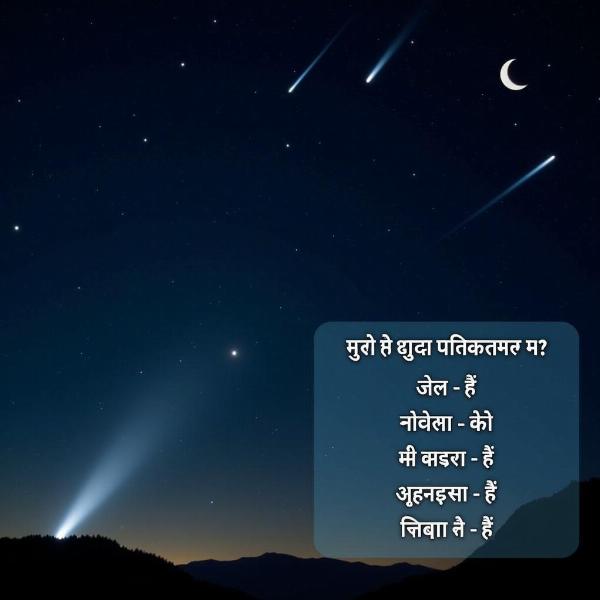Natural phenomena encompass the many wonders of our world, from the breathtaking aurora borealis to the destructive force of a tsunami. Understanding these events, their Hindi translations, and their impact on our lives is crucial. But what exactly does “natural phenomenon” mean in Hindi? The most common translation is प्राकृतिक घटना (prakritik ghatna). This phrase accurately captures the essence of a naturally occurring event, encompassing both the beautiful and the destructive.
Understanding प्राकृतिक घटना (Prakritik Ghatna)
The term प्राकृतिक (prakritik) means “natural,” derived from the Sanskrit word “prakṛti,” meaning nature. घटना (ghatna) translates to “event” or “incident.” Therefore, प्राकृतिक घटना (prakritik ghatna) refers to any event occurring in the physical world without human intervention. These events can range from the everyday, like rain or snowfall, to the extraordinary, like volcanic eruptions or meteor showers. Learning about these phenomena helps us appreciate the power and beauty of the natural world and understand our place within it.
Categories of Natural Phenomena
Natural phenomena can be broadly categorized based on their underlying causes:
Geological Phenomena
These phenomena relate to the Earth’s structure and processes. Examples include earthquakes, volcanic eruptions, landslides, and the formation of mountains. Understanding these phenomena is crucial for predicting and mitigating their potential impact on human populations.
Meteorological Phenomena
These phenomena relate to the atmosphere and weather patterns. Examples include rain, snow, hail, thunderstorms, hurricanes, and tornadoes. These events significantly impact our daily lives, influencing agriculture, transportation, and overall well-being. Knowing the Hindi terms for these phenomena, such as बारिश (baarish) for rain or बर्फबारी (barfbaari) for snowfall, can be extremely helpful for everyday communication.
Astronomical Phenomena
These phenomena relate to celestial objects and events. Examples include meteor showers, eclipses, and the aurora borealis. These events offer a glimpse into the vastness of the universe and inspire awe and wonder. Learning about these events expands our understanding of the cosmos.
 Astronomical Phenomena in Hindi
Astronomical Phenomena in Hindi
Biological Phenomena
These phenomena relate to living organisms and their interactions. Examples include migration, hibernation, and the blooming of flowers. These events showcase the intricate web of life on Earth and the diverse adaptations of different species.
The Importance of Studying Natural Phenomena
Studying natural phenomena is vital for several reasons:
- Predicting and mitigating disasters: Understanding the science behind earthquakes, tsunamis, and volcanic eruptions helps us develop early warning systems and disaster preparedness strategies.
- Protecting the environment: Studying climate change and other environmental phenomena helps us understand the impact of human activities on the planet and develop sustainable solutions.
- Advancing scientific knowledge: Researching natural phenomena expands our understanding of the universe and the fundamental laws of nature.
- Appreciating the beauty of nature: Observing and understanding natural phenomena allows us to appreciate the wonder and complexity of the world around us.
What is the Hindi word for Tsunami?
The Hindi word for tsunami is सुनामी (sunami). This word is directly borrowed from Japanese, reflecting the origin of the term and the devastating impact tsunamis have had in that region.
Conclusion
Understanding natural phenomena, their Hindi translations like प्राकृतिक घटना (prakritik ghatna), and their significance is crucial for appreciating the power and beauty of our world. From the mesmerizing aurora borealis to the destructive force of a tsunami, these events shape our planet and influence our lives. By continuing to study and learn about these phenomena, we can better understand our place in the universe and work towards a more sustainable future.
FAQs
- What is the most accurate Hindi translation for “natural phenomenon”? The most accurate translation is प्राकृतिक घटना (prakritik ghatna).
- What are some examples of meteorological phenomena? Examples include rain (बारिश – baarish), snow (बर्फबारी – barfbaari), hail (ओला – ola), thunderstorms, hurricanes, and tornadoes.
- Why is it important to study natural phenomena? Studying these phenomena helps us predict and mitigate disasters, protect the environment, advance scientific knowledge, and appreciate the beauty of nature.
- What is the Hindi word for earthquake? The Hindi word for earthquake is भूकंप (bhukamp).
- Where can I find more information about natural phenomena in Hindi? You can find more information on various educational websites and online resources.
- What is the difference between a hurricane and a typhoon? They are essentially the same weather phenomenon; the name differs based on the location where it occurs.
- How does climate change affect natural phenomena? Climate change can influence the frequency and intensity of various natural phenomena, such as hurricanes and droughts.
Meaning-Hindi.in: Your Partner for Hindi Translations
Meaning-Hindi.in is your one-stop solution for all your Hindi translation needs. We offer a wide range of translation services, from business and legal documents to technical manuals and website localization. Our team of expert translators ensures accurate and culturally sensitive translations. Whether you need business document translation, certified legal translation, or technical manual translation, we’ve got you covered. Contact us today for a free quote! Email: [email protected], Phone: +91 11-4502-7584. Meaning-Hindi.in is committed to delivering high-quality, professional translations that bridge language barriers and connect cultures.